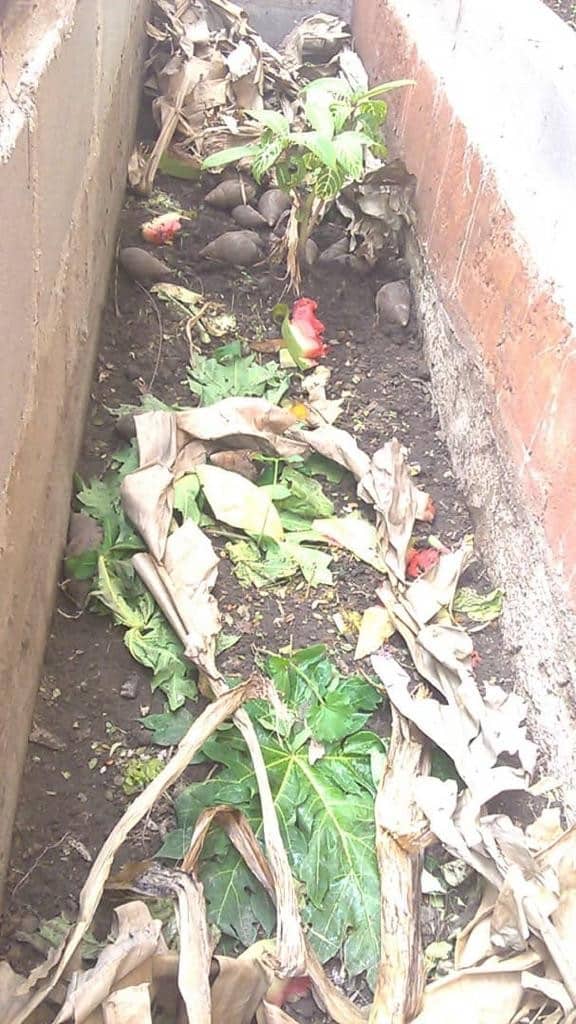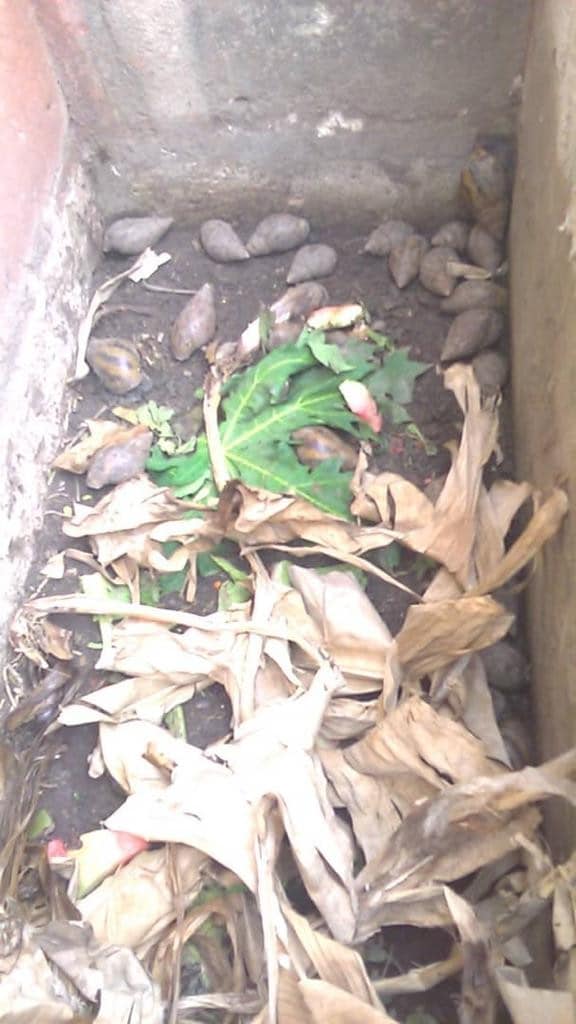Thank you for reading this post, don't forget to subscribe!
Did you know snail farming is not only a lucrative business but also a sustainable agricultural practice? In Ghana, snail farming has gained popularity as a means of diversifying income and promoting food security.
But what makes snail farming so unique? This intriguing industry offers a range of surprising benefits that extend beyond financial gains. From its low environmental impact to its potential for job creation, snail farming is revolutionizing the agricultural landscape in Ghana. In this article, we will explore the fascinating world of snail farming and delve into how Ghana is leading the way in sustainable agriculture.
The Importance of Sustainable Agriculture
Sustainable agriculture is crucial for the long-term health and well-being of our planet. It focuses on practices that minimize environmental impact while ensuring the production of high-quality food. Snail farming aligns perfectly with the principles of sustainable agriculture. Unlike traditional livestock farming, snail farming requires minimal resources and has a low carbon footprint. Snails can thrive on a variety of feed sources, including kitchen waste and agricultural byproducts, reducing the need for expensive and environmentally harmful feed. By embracing snail farming, Ghana is leading the way in sustainable agriculture and setting an example for other countries to follow.
The Rise of Snail Farming in Ghana
In recent years, snail farming has experienced a significant boom in Ghana. The favorable climate, abundant natural vegetation, and growing demand for snails have contributed to the rise of this industry. Snails are a delicacy in Ghanaian cuisine and are in high demand both domestically and internationally. As a result, many farmers have recognized the potential for profit in snail farming and have started their snail farms. The Ghanaian government has also supported the industry, which has implemented various initiatives to promote snail farming as a viable and sustainable agricultural practice. With its strong foundation and growing popularity, snail farming has become a thriving sector in Ghana’s agricultural landscape.
Economic Benefits of Snail Farming
Snail farming offers numerous economic benefits, making it an attractive venture for farmers in Ghana. Compared to other livestock farming ventures, snail farming requires minimal investment in infrastructure and equipment. This makes it accessible to small-scale farmers who may not have the financial resources to engage in large-scale agriculture. Additionally, snails have a high market value and are in constant demand, both locally and internationally. This creates opportunities for farmers to generate substantial income and diversify their sources of revenue. By venturing into snail farming, farmers in Ghana are not only contributing to their financial stability but also to the overall economic growth of the country.
Environmental Benefits of Snail Farming
Snail farming is an environmentally friendly practice that minimizes the negative impact on the ecosystem. Unlike traditional livestock farming, snail farming does not contribute to deforestation or soil degradation. Snails feed on a variety of organic matter, including leaves, fruits, and vegetables, which reduces the need for extensive land use and the clearing of natural habitats. Moreover, snails produce minimal waste and do not emit greenhouse gases, making them an environmentally sustainable option. By promoting snail farming, Ghana is not only preserving its natural resources but also contributing to global efforts to combat climate change and promote sustainable development.
Health Benefits of Consuming Snails
In addition to its economic and environmental benefits, snail farming also offers health advantages. Snails are highly nutritious and rich in protein, vitamins, and minerals. They are a good source of iron, which is essential for maintaining healthy blood cells and preventing anemia. Snails also contain omega-3 fatty acids, which have been linked to heart health and brain function. Moreover, snails have low cholesterol and fat content, making them a healthy choice for those looking to maintain a balanced diet. By incorporating snails into their diet, Ghanaians can enjoy the health benefits of this nutritious delicacy while supporting sustainable agriculture.
Challenges and Opportunities in Snail Farming
While snail farming presents numerous benefits, it also comes with its own set of challenges. One of the main obstacles faced by snail farmers is the lack of technical knowledge and expertise. Snail farming requires specialized skills and an understanding of the snails’ behavior and habitat. Without proper training and guidance, farmers may struggle to optimize their farming practices and achieve maximum productivity. Additionally, the market for snails can be unpredictable, with fluctuations in demand and supply. However, these challenges also present opportunities for innovation and growth. By investing in research and development, Ghana can address these challenges and further strengthen its position as a leader in snail farming.
Government Initiatives and Support for Snail Farming
Recognizing the potential of snail farming, the Ghanaian government has implemented various initiatives to support and promote the industry. These initiatives include providing technical training to farmers, facilitating access to finance and credit, and establishing snail farming cooperatives. Additionally, the government has partnered with international organizations to enhance the export market for Ghanaian snails. By actively supporting snail farming, the government is creating an enabling environment for farmers to thrive and contribute to the country’s agricultural development.
Success Stories and Case Studies in Ghana
Ghana is home to numerous success stories in snail farming, showcasing the potential of this industry. One such success story is the Snail Farmers Association of Ghana, a collective of farmers who have achieved significant success in snail farming. Through collaboration and knowledge-sharing, these farmers have been able to overcome challenges and maximize their profits. Another inspiring case study is the story of a young entrepreneur who started a snail farm and transformed it into a thriving business. These success stories serve as inspiration for aspiring snail farmers in Ghana and demonstrate the untapped potential of this industry.
How to Start Your Snail Farm
If you’re inspired by the benefits of snail farming and want to start your Snail farm, here are a few steps to get you started:
1. Research and gather information about snail farming, including the different species of snails suitable for farming and their requirements.
2. Identify a suitable location for your snail farm, considering factors such as temperature, humidity, and access to feed sources.
3. Create a suitable habitat for the snails, ensuring proper ventilation, temperature control, and protection from predators.
4. Source snails for your farm from reputable suppliers or consider collecting snails from the wild (if permitted).
5. Provide the snails with a nutritious and balanced diet, incorporating a variety of Organic matter.
6. Monitor the snails’ growth and health regularly, and make necessary adjustments to their environment and diet.
7. Market your snails through various channels, including local restaurants, farmers’ markets, and online platforms.
Starting a snail farm requires dedication, patience, and continuous learning. However, you can build a successful and sustainable snail-farming enterprise with the right knowledge and resources.
Conclusion
Snail farming is more than just a shell of an idea. In Ghana, it is a thriving industry that offers a range of surprising benefits. From its low environmental impact to its potential for job creation, snail farming is revolutionizing the agricultural landscape in Ghana. By embracing snail farming, Ghana is leading the way in sustainable agriculture and setting an example for other countries to follow. The economic, environmental, and health benefits of snail farming make it a lucrative and socially responsible venture. So, if you’re looking for a sustainable agricultural practice with untapped potential, consider the slimy world of snail farming.


